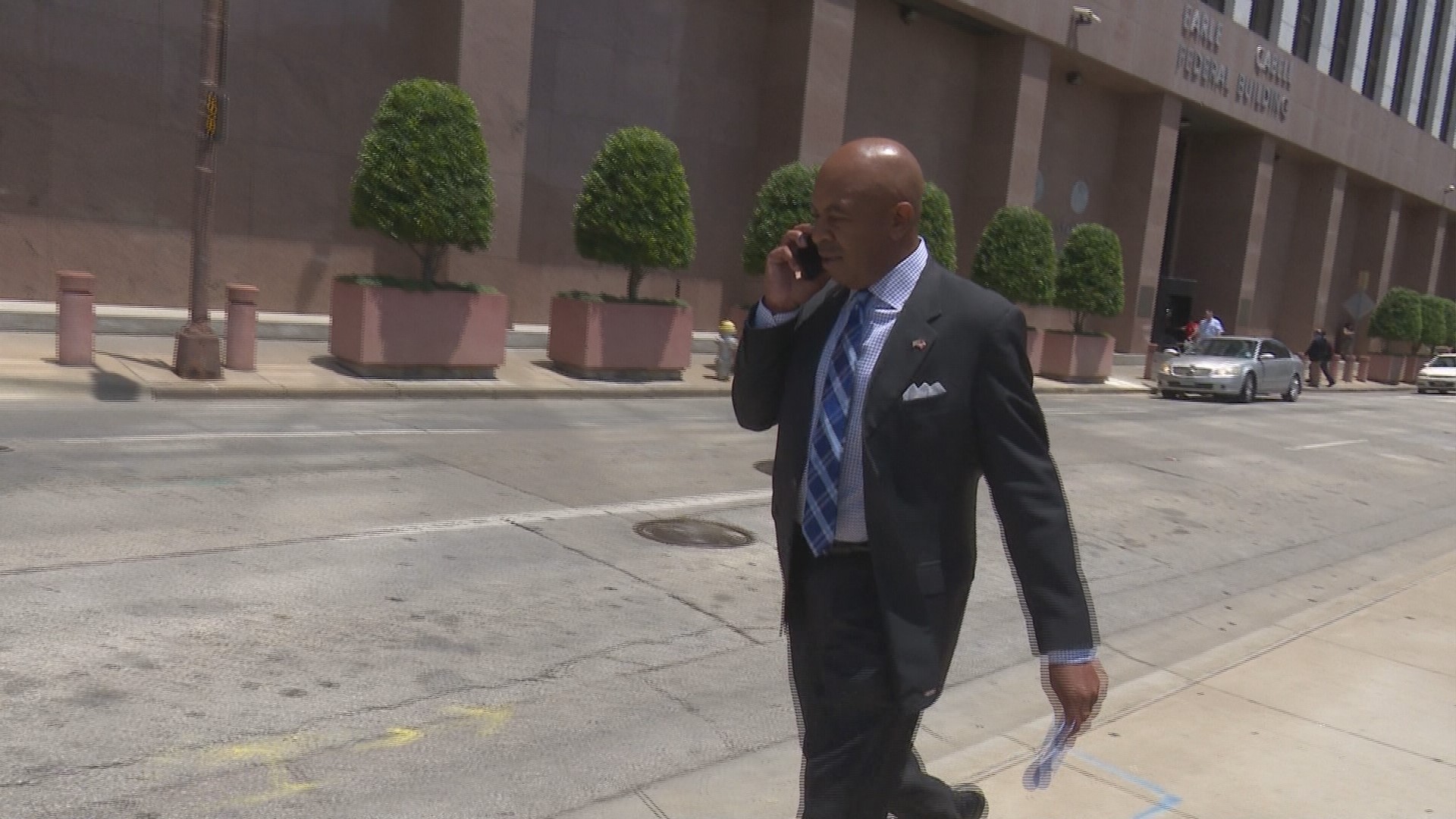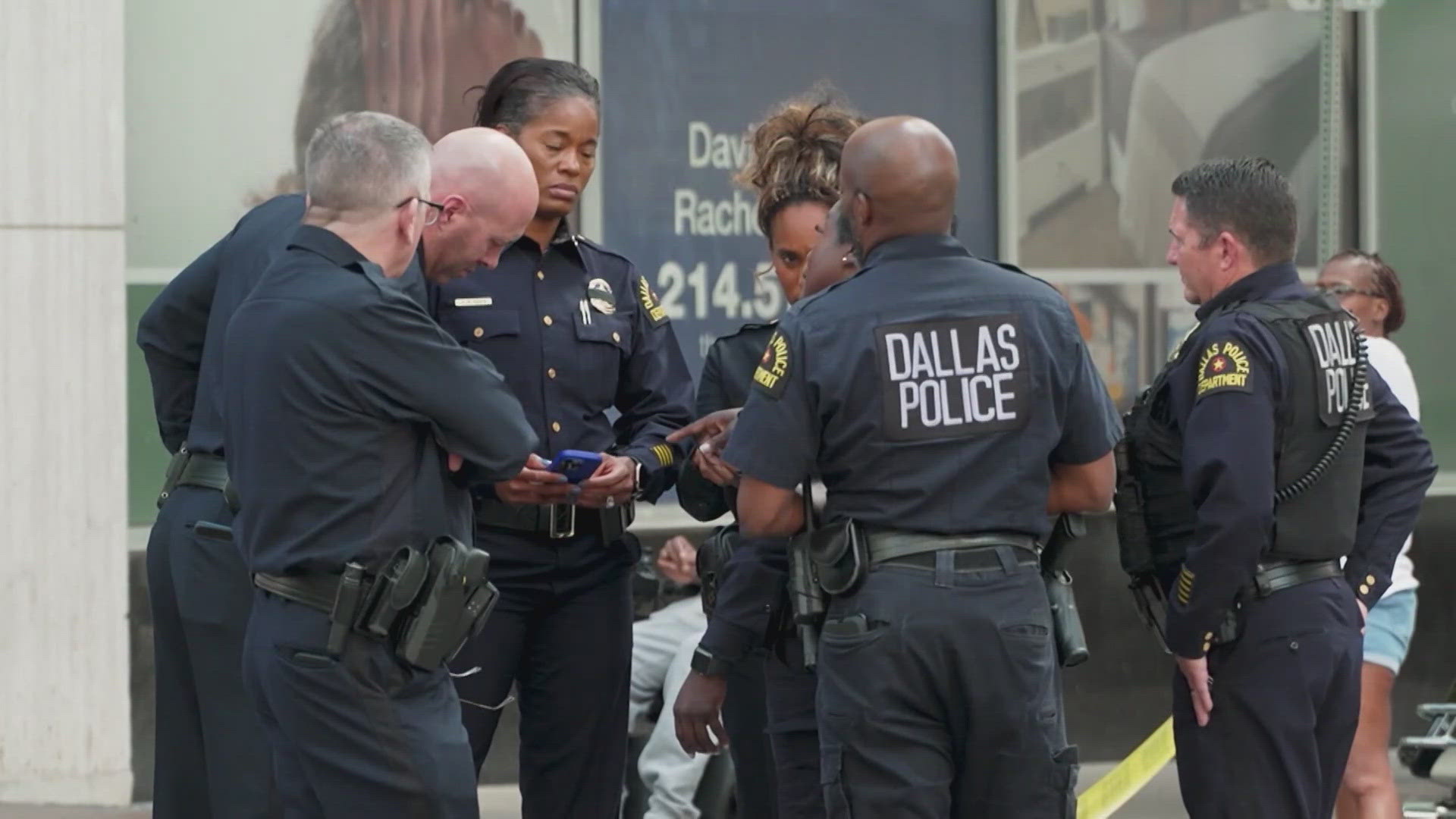DALLAS -- The one-time chief investigator for former District Attorney Craig Watkins was sentenced Wednesday to three years of probation for taking a bribe from a drug dealer in exchange for persuading an assistant district attorney to dismiss a criminal case.
Anthony L. Robinson was sentenced by U.S. District Judge Ed Kinkeade. He could have faced up to five years in prison. His light sentence is a clear indication that Robinson cooperated with federal law enforcement officials in their corruption investigation.
Kinkeade also ordered that Robinson pay $31,708 in restitution and a $10,000 fine.
“I stand here before you accountable for my actions,” Robinson told the judge. “I’m embarrassed and ashamed. … I’m just sorry. I ask myself all the time why?”
Robinson told Kinkeade that he prays all the time for forgiveness. He promised the judge that he would never see him again in his court.
“You don’t need me to lecture you,” Kinkeade told Robinson. “Just do the right thing next time.”
Robinson declined to comment as he left the courthouse.
Last summer, WFAA reported that the Department of Justice was conducting a wide-ranging investigation into whether bribes were paid to former officials in Watkins’ office in exchange for favorable treatment on criminal cases.
FBI agents had questioned current and former Dallas County prosecutors about cases of theirs that were dismissed and whether it was done as a favor to certain attorneys. Agents are also investigating whether any money or anything of value may have exchanged hands related to those dismissals.
Robinson’s attorney, Kirk Lechtenberger, declined comment on what assistance his client had provided to federal investigators. He referred questions to the U.S. Attorney’s Office.
“We’re very grateful and happy with three years’ probation,” he said after court. “Obviously, you know that getting three year probation is like catching lighting in a bottle.
In court, he indicated that his client had been cooperative with the government.
“Although what he did was incomprehensible, we’ve tried to make amends,” Lechtenberger told the judge.
He also cited his client’s military service and extensive deployment as a reason to give him a lesser sentence.
Kinkeade mentioned in court that there were “some matters that are sealed” in connection with Robinson’s case. He also ordered that Robinson’s entire case file “and everything in it” be sealed. His case file can no longer be accessed on the federal online case management system.
Robinson took the bribe to have a case against Wayne Joseph Sweeney dismissed. The charge was for failing to register as a sex offender.
In 2013, Heath Harris, Watkins’s former second in command, signed off on the dismissal of Sweeney’s case.
Harris has not been accused of having any knowledge of Robinson’s bribery scheme, and is not mentioned anywhere in Robinson’s criminal case filings in federal court. He has denied any wrongdoing.
“I don’t recall Mr. Robinson ever approaching me about this particular case,” Harris said last summer.
He said Robinson had nothing to do with the dismissal of the case. He indicated that Robinson had taken advantage of Sweeney by conning him into paying a bribe. He says the charge was dismissed because he was not convicted of a crime that would have required him to register in Texas.
“It’s dismissal, not based on Mr. Robinson, but based on the merits of the case, the law, and the evidence that this particular person did not have to have register,” Harris said in the prior interview.
Harris defended his decision to sign the dismissal paperwork, saying it was something that he often did during his time as no. 2 at the DA’s office.
“The first assistant is involved in everything,” Harris said.
Harris has previously said that he plans to run for district attorney. He is now in private practice doing criminal defense work.
According to court documents in Robinson’s bribery case, Robinson and Sweeney struck up the bribery arrangement when Robinson traveled to Las Vegas in 2012 to arrest Sweeney on a charge filed by Dallas police for failure to register as a sex offender.
On the return trip, according to Robinson’s plea papers, Robinson told Sweeney that he wanted to enter the cattle business. Sweeney told Robinson that he was wealthy and would be willing to enter into business if he could get his case dropped. Robinson agreed.
On Feb. 28, 2013, Robinson drafted a business proposal saying Sweeney would provide an initial investment in the partnership. On March 26, 2013, Sweeney deposited $200,000 into a bank account, and Robinson was added as a co-signer the next day. Robinson wrote a $5,000 check to his wife, and ultimately took about $50,000, court documents show.
On May 24, 2013, Robinson “used his position as chief investigator … to persuade an assistant district attorney to dismiss the criminal charge…,” according to his plea paperwork.
In October 2013, after the Dallas County case was dismissed, Sweeney was charged in federal court in Dallas with conspiracy to distribute a controlled substance analogue, i.e., K2.
Sweeney, who lived in Cancun, Mexico, and Dallas, operated a store called “Hostile Pipes” on LBJ Freeway in Dallas where he sold the illegal K2. Sweeney pleaded guilty to the K2 charge in February 2014, records show. He is currently in federal prison.
As chief investigator, Robinson supervised about 80 other investigators involved in helping prosecutors prepare cases for criminal prosecution.


